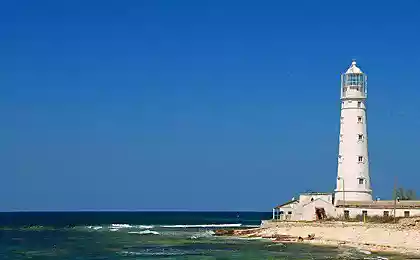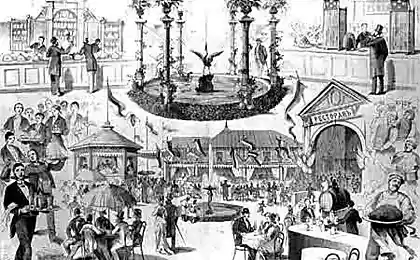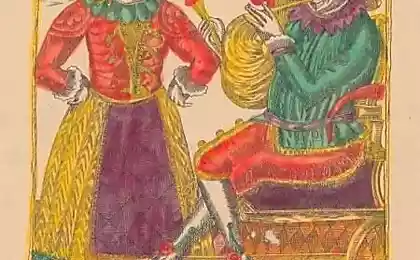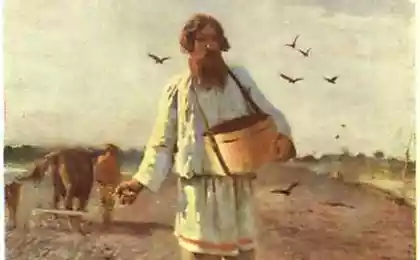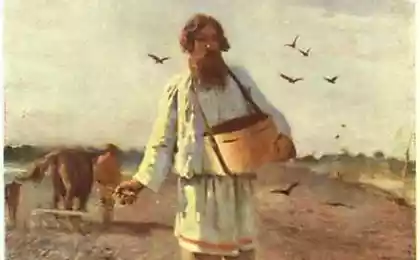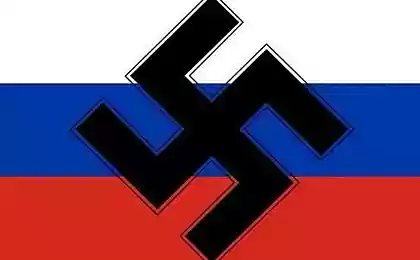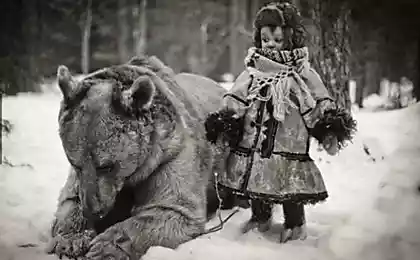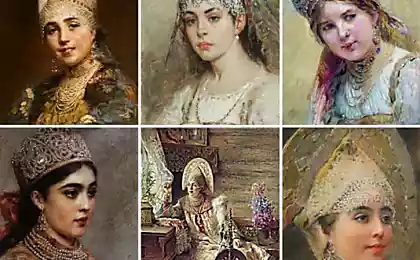1553
Drinking traditions from Russia to Russia
For several reasons an interest and the need to "refresh" in the memory of the circumstances of the emergence and development in our country such as the harmful tendencies excessive drinking. In my opinion, the topic is very interesting and, unfortunately, to date - she would like to share.
The topic will be a kind of historical very, very concise synopsis, or even likely a textbook on the subject. Since I do not have any historic (writing "by itself"), nor the literary (to write beautifully) education, the overwhelming majority of text will be of excerpts from various sources.
I do not know how such an "essay" category corresponds to the site, but I hope that someone they seem interesting and informative.
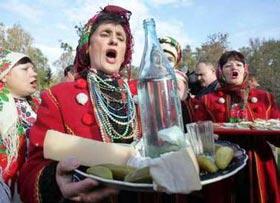
Alcohol consumption in ancient Russia
Drink in those distant and difficult time, there was no time ... Skvortsov, Solovyov and Klyuchevskii Tatishchev and Kostomarov, devoting life Vyatichi and Krivichy entire volumes, did not notice it any cheap popular joy or home ease: hard work, harsh climate, a tribute to the princes and frequent strife.
But there is not the slightest mention of the wine import to Russia or any amusing drinks. And there are no documents in the business of Russia is no mention of the production or consumption of alcoholic beverages.
The life of the worker and soldier little compatible with friendly gatherings and abundant libations.
Neighbors - Byzantines, Arabs, Greeks, are Russian with respect, fear or antipathy, but in no way associated with the characteristics of the people unrestrained drunkenness. Moreover, it creates the impression that the Russian people in the uncomfortable time, regardless of their social status, not only had no grounds for the fun part, but the rest of the ordinary was stripped. The history between X - XIV centuries like a report from the battlefield: Svyatopolk, Boris and Gleb, the Pechenegs, the constant bickering between Yaroslavovich and Vsevolod, Tatars, western neighbors ... From the number of trouble simply breathtaking!
You can certainly rely on the fact that the political and administrative upheavals dealt mainly with "upper echelons" and the people drank themselves to pleasure and the need to develop resistance. However, there was no reason, no leisure for drinking in Russia. Wonder worthy of what our ancestors contrived between the wars, invasions, fires have children, to grow, to nurse and treat them! Population increases, which we, in a far more greenhouse conditions, we can not achieve ...
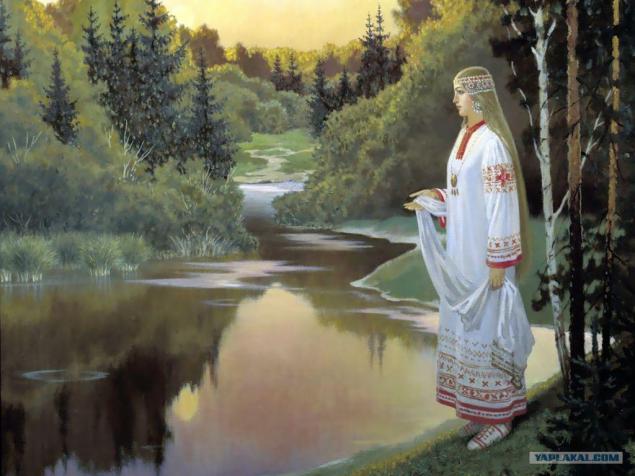
In the pre-Christian era in Russia alcohol consumption occurred mainly on the pagan feasts (folk and princely feasts, revels, feasts). While in Russia, the main raw material for the production of alcohol was the honey and therefore the traditional intoxicating drinks were low-proof: mead, beer, home-brewed beer, and with the tenth century. and grape wine, and their reception was accompanied, as a rule, a hearty meal, all of which minimized the damage to health from alcohol. From these distant times he preserved the famous refrain of many folk tales: "And I was there. Honey, beer drinking. Mustache dripping, and her mouth is not horrible. " Intoxicating drink brewed each for himself, as he had for the items. Occasionally drink boiled families the world that received the name of worldly mash, worldly beer. Communities and worlds, towns and villages converged on the merrymaking, going on bratchiny. Feasts and conversation. On the folk feasts invited the prince, the prince was going to a feast people.
A common misconception of foreigners - to take welcoming banquet in honor of the guest for the daily practice of the Slavs. The Arab writer Ibn Fodlan wrote about Slavic pagans, "they indulge in drinking wine unreasonable way and drink it all day and night" .Slova Prince Vladimir of Kiev Svyatoslav "Russia has a cheerful Petey, can not already be alone" does not mean that the Russian people I could not do in everyday life without alcohol. Kiev prince could not imagine a feast without spirits of his time. It was only on all his polite refusal ironic Muslim ambassadors leaning Russia to accept Islam, which did not allow the use of alcohol.
The Christian faith, which has been converted by the Russian people, did not forbid drinking, but demanded moderation in respect of intoxicating. "Innocent wine drinking blame" (I. Christ). Christianity played an important moderating role in the abuse of alcohol is strictly regulated consumption. Evidence of this - some famous proverbs: "For the feast of Christ is not a sin to drink a glass of vodka a simple '(ie drinking on weekdays - sin)," One glass of - health, the other - on the fun, and the third - in the rubbish "," A lot of wine to drink - to be trouble, "" Drink to the bottom - not to see good "," Work coin hoards, hops coin drown ».
Until the middle of the XVI century. people paying duty on malt, hops and honey ("mash fee"), cooked well-known by the time the low-alcohol drink (5-8 °) - mead, beer, Braga and used them at home or in the tavern. Tavern - Old Slavic public drinking establishment. Tavern called the place where people converge for a drink and a meal, to talk and drink with songs and music. The tavern has a free national institution mattered Hall and Gostiny Dvor. In Kiev, Novgorod, Pskov and Smolensk inn is an important city institution.
None of written testimony domoskovskoy Russia does not mention drunkenness as socially unacceptable forms of alcohol, wearing a massive scale. Alcohol abuse was restrained while a number of factors. Strong traditions in Russia determined the ritual use of intoxicating beverages on the occasion of major events, Orthodox holidays, weddings, memorial services, the completion of the harvest, and the like, wearing the overall sporadic. Alcoholic drinks were low-proof. Most people did not have food surpluses for the production of alcohol. Alcoholic drinks were relatively expensive. Alcohol on an empty stomach is usually not used: honey, beer or wine drinking either feast or in the tavern, where the food is always served.
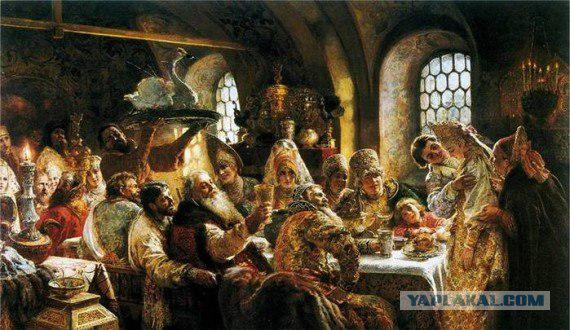
Obviously, in this period of history in their own and other people's eyes we are still "white and fluffy". Mead - the strongest known drink, and he rarely used and with dignity. We already know what happened in the same century, in other lands, so critical for Russia. Already there is a drinking, good gentlemen, so drink! And in this case we had a long and varied experience.
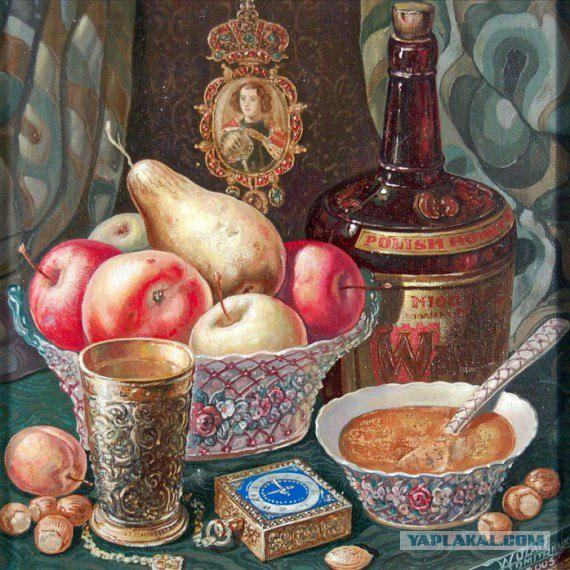
In Russia there are no rituals related to wine. You do not need to drink, taking the oath of allegiance to the feudal lord, or get put on. And for the Greeks and Romans the wine was sacred. In pre-Christian and, later, in the Christian European and other cultures, ceremonial and religious rituals are inextricably linked to wine and wine making. In Greece, Dionysus was the most famous god of viticulture and winemaking. The body of Dionysus was the vine, and the blood - wine. In honor of Dionysus staged rowdy celebration that lasted for weeks. In other words, the people fell into a state of long, now referred to as "binge." Similar story with the god Bacchus with a remarkable constancy arise from the Romans.
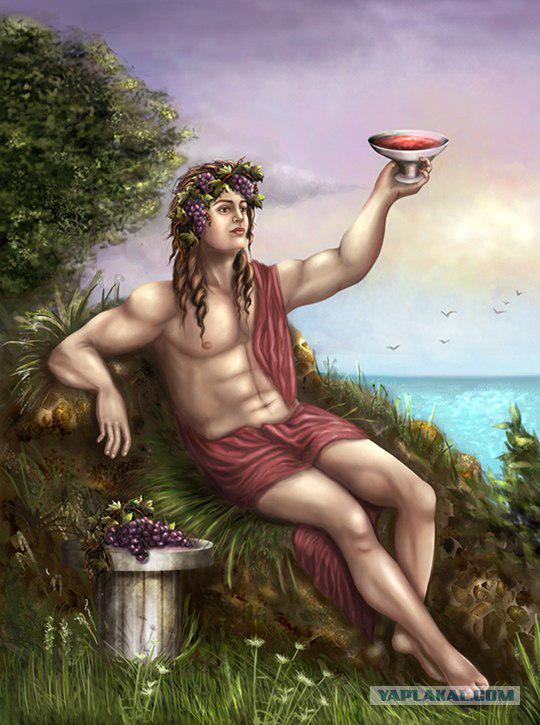
And believers in Christianity drink wine - the blood of Christ. By virtue of his religious or ritual use of wine has become one of the essential elements of Western civilization. But the Slavs no god of wine, beer or god god mead. Among the Slavic pantheon - Dazhdbog, Perun, Yarila and others - no one can boast such a remarkable specialization. Even a Slavic deity as delight or Oslad that can somehow relate with pleasure, perhaps a stretch and "medopitiem" only patronized the arts, and was always accompanied by Lada - Slavic goddess of love, beauty and harmony.
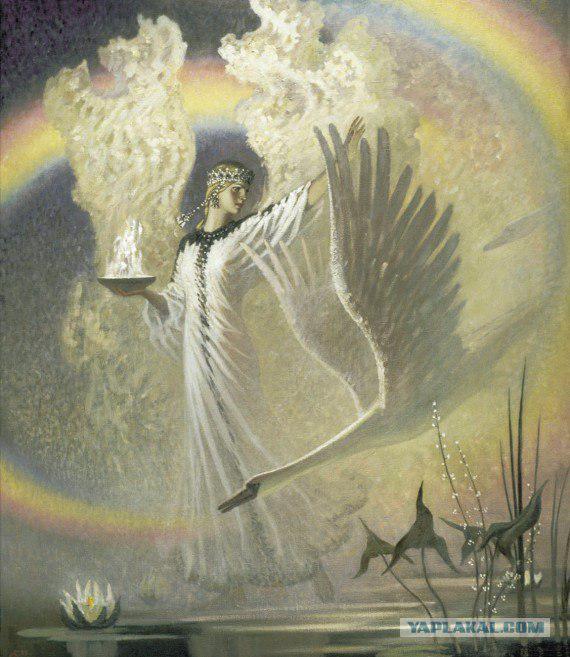
In "Bylina" cheerful feasts described in the court of Vladimir the Red Sun. But there they describe opivshihsya, lying on the ground, losing human form. All western epics they are: in the "Elder Edda" and "Prose Edda," and "Song of the Nibelungs." And in "Bylina" - no!

In general, the only case mentioned drunkards and drunkenness in the Ancient Russia - a story about Sadko and necessity is erratic. But, first, this epic Novgorod - the most European city of Russia, a member of the Hanseatic League. Secondly, endless adventures Sadko contain only one "drunk" episode. The remaining examples of revelry - not booze, but rather impetuous, daring fun, such as the Dance of the Sea King by harp Sadko.
We draw attention here to some detail: in Russian legislation there are no restrictions and penalties for drunkenness drunks. No condemnation of drunkenness, stories for children about the dangers of drinking. This is neither in the "Instructions" Monomakh, nor in the patristic religious literature or in other books of Ancient Rus. No mention of the harmful effects of drinking, in fact, anywhere.
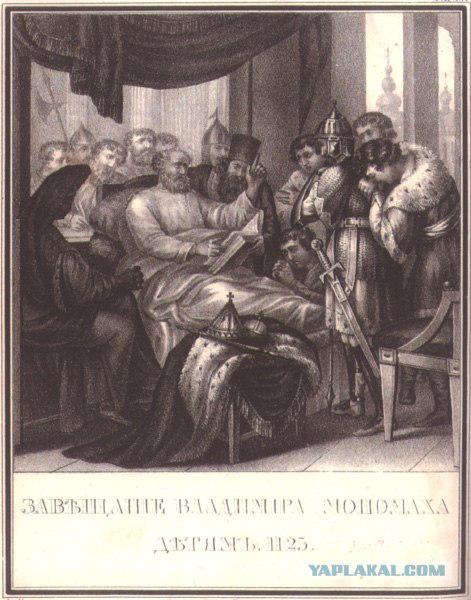
The reasons for this phenomenon may be two, either totally drunken nature of society ... But we already know that drinking a little, or, apparently, is not another assumption: the consequences of drinking and drunkenness were not a social problem.
There, where the wine is produced and established tradition of wine drinking, there had to pay attention to the negative effects of alcohol on health and character. The wine culture discussed that whether alcoholism is transmitted by heredity and how alcoholism affects parents' physical and mental health of children. And mythological heroes behave accordingly. From Roman mythology, it is known that a drunken Jupiter and his wife Juno was born lame Vulcan. It is a kind of warning drinkers - that's what can happen! In Slavic mythology, there is nothing even remotely similar.
Where drinking binges and there appeared various rules and restrictions. Known severity of early Roman manners. But against the background of the wine drinking laws are very strict. In ancient Rome, according to the laws of Romulus men to 35 years in general forbidden to drink wine, were not allowed to drink wine women. If a Roman allowed themselves to drunken husband, her buried alive (!).
In ancient Greece, a law was passed prohibiting the newlyweds drink wine on the day of the marriage. In Carthage were forbidden to drink wine in those days, when executed married obyazannosti.V ancient China, only 60 people received three privileges: grow a beard, walking with a stick, and drinking wine. In ancient India, if drunkenness accuses representative of the higher caste - Brahmin, then forced to drink from the red-hot metal vessel boiling liquid until then, until he died. The wives of the Brahmins, if violated a vow of abstinence from alcohol, were expelled from the house, their souls were awarded to resettle in a dog or vulture, and on the forehead with a hot iron they burned the image of the bottle.
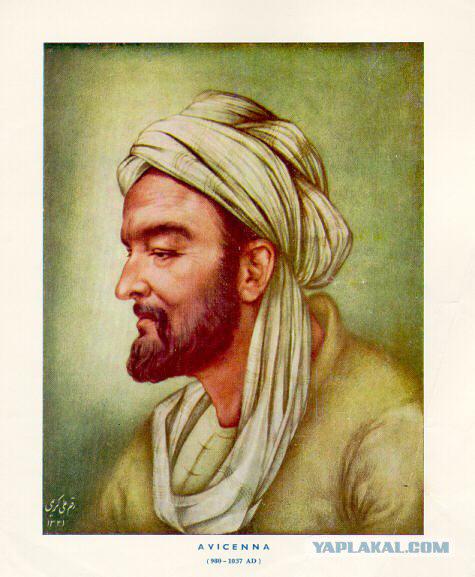
In the Middle Ages, Abu Ali Ibn Sina (c. 980-1037.), The great philosopher and physician, social activist in Central Asia, poet and literary critic, in his poem about medicine
"Urdzhuz" wrote about the use of wine:
You drink wine, it does not seek oblivion,
Do not bring themselves to drunkenness,
Kohl your health you are not the enemy,
You can not drink every day on an empty stomach.
Contentment is only small. Drink nabid -
Wine of the dates will not hurt.
...
Eat them with quinces and summer time
Dilute with water an ice wine.
Especially when you're given
Any long-term wine.
Remember, murky wine neduzhit
And head stronger than the other circles.
To drink strong wine doubly dangerous,
It is destroying the health of every hour.
But in Europe, the Middle Ages, noted the widespread alcohol abuse and alcoholism. "Germany zachumlena drunkenness" - exclaimed in the XVI century church reformer Martin Luther. But is one Germany? "My parishioners - complained simultaneously with the English pastor William Kent - every Sunday all fatal drunk».
Posted in [mergetime] 1316891137 [/ mergetime]
Even before the invasion of the Normans in 1066, residents of the UK, mostly Saxons won reputation bitter drunkard.
And all because of the beer, which began to consume instead of water, because, as we noted earlier, in the water are agents of dangerous diseases. On the eve of the arrival of the Normans in England, even at the abbey and each monastery had its own beer zavodik.
"Russia has entered a sober Middle Ages" - according to experts who have studied this issue. With this agreement in principle, many. But the fact that Russia and came out of the Middle Ages sober.
The advent of leaded alcohol in Russia recorded only in the fifteenth century, they gave us in Europe. And used it in Russia, initially exclusively for making herbal infusions, drugs, and compresses.
Russian to the sixteenth century drank mainly honey, beer and, in part, imported wine. But how many imported wines and how many would buy it? Drunkenness as such in Russia was not. No problem - there is no fear of a problem. There are no consequences and treatment.
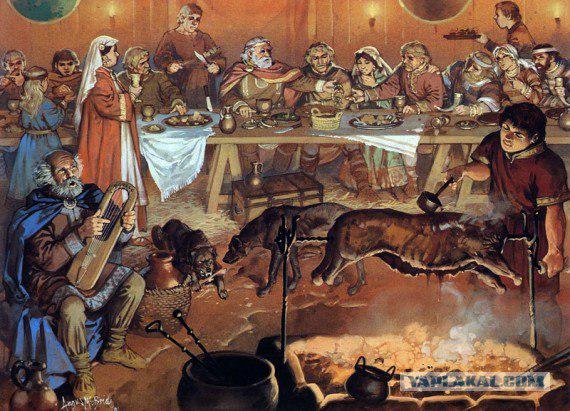
The first wave: change of alcoholic traditions in the period of the Moscow State
Drunkenness - socially condemned form of alcohol consumption. Wrong is the belief that alcoholism in Russia emerged with the advent of vodka. Grape alcohol (aqua vita) in Russia were imported long ago - in 1386 Production of alcohol from rye Russian raw materials invented in the 1448-1474 biennium. Dilute with water grain alcohol called bread wine or vodka. In Poland, vodka production of bread were able to establish only a century later. Only the second half of the XVI century. there is evidence of drunkenness in Russia - Stoglavy Cathedral (1551) called "Drinking wine in the glory of God, and not in drinking».
Thus, the half-century since the early entry into the Russian spirit and the centenary of the invention of it distilled from grain feedstock mention of drunkenness in Russia was not. The patriarchal way of life in old Russia, despite the appearance of vodka, to contain the spread of drunkenness. Body of everyday instructions of the XVI century. "Domostroy" gave clear guidance on alcohol: "Drink, but do not get drunk. Drink a little wine for fun and not for drunkenness: drunkards will not inherit the kingdom of God. And my wife does strongly intoxicating drink would not be: no wine, no honey, no beer. And I saw the wife beskhmelnuyu Braga and kvas - both at home and in public ».
Drinking in Russia comes from the displacement tavern tavern, with a ban by the common people to brew beer and Braga, with the loss of independence of the people - enslavement. It comes in Russia, where the sale of alcohol became Article state revenue.
Tsar Ivan IV (the Terrible) forbade selling vodka in Moscow, allowing her to drink alone oprichniki. For this purpose in 1533 it was built on the Baltschug special house called Tatar tavern. That was the first "Tsarev tavern."
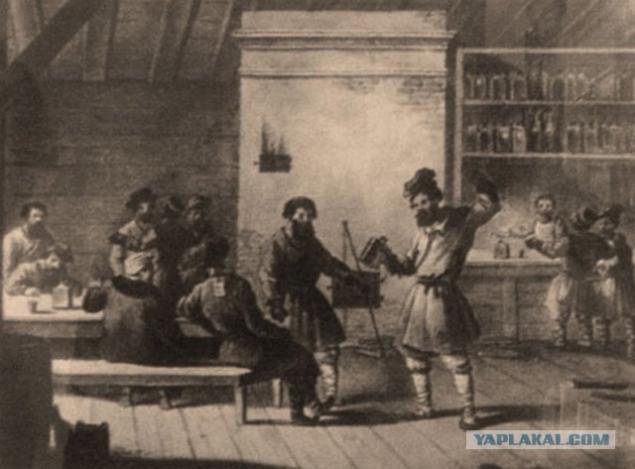
Around 1555 in Moscow are beginning to prescribe governors everywhere start "Tsarev taverns." In these drinking houses could only drink alcohol, not biting, which leads to rapid intoxication. There are monstrous in fact drinking at home, where you can only drink and eat - you can not. If the ancient Slavic inn, as in the Tatar tavern or German inn, it was possible to eat and drink, then in Moscow tavern told just drink and drink, and most importantly, one only ordinary people, that is, the peasants and townsmen, as they one it was forbidden to prepare homemade drink. Distribution taverns in Russia has gone very quickly. Alien Fletcher, who was in Moscow principality in 1588, reports that in every big city arranged a tavern or potatory house, which sells vodka, honey and beer.
Trade vodka exclusively concentrated in the hands of the royal administration. Starts widespread prohibition of Korca. Eradication of Korca and approval breech sale of alcohol was the main purpose of liquor policy. When Boris Godunov inn everywhere (except in the Ukraine) have been destroyed: in 1598 individuals were forbidden to sell vodka.
For the spread of taverns and drinking in Russia was an economic interest of the state.
In 1648, at the beginning of the reign of the second Russian tsar of the Romanov dynasty - Alexei Mikhailovich - in Moscow and other cities appeared "tavern riots", which began in the inability of the urban populace to pay excise debt, a sharp decline in the quality of vodka, heavy drinking devastating consequences for the people . In particular because of the Easter mass drunkenness in a few years the crop suffered from suburban peasants. To suppress these riots had to use troops.
Believers drunkenness associated with the fall. Under the influence of the Patriarch Nikon seeks to combat alcoholism. With the aim of reforming the drinking business in Russia Tsar Alexei Mikhailovich in 1652 convene the Zemsky Sobor, called "the cathedral of the taverns." It issued a decree limiting the number of pubs. It also stated: "In Lent, the Dormition, even on Sundays, not to sell the wine in Christmas Petrov and sell positions on Wednesdays and Fridays." Drinking lovers of "green snake" and in the world and in the Church becomes extremely negative.
Thank you for your attention.
The topic will be a kind of historical very, very concise synopsis, or even likely a textbook on the subject. Since I do not have any historic (writing "by itself"), nor the literary (to write beautifully) education, the overwhelming majority of text will be of excerpts from various sources.
I do not know how such an "essay" category corresponds to the site, but I hope that someone they seem interesting and informative.

Alcohol consumption in ancient Russia
Drink in those distant and difficult time, there was no time ... Skvortsov, Solovyov and Klyuchevskii Tatishchev and Kostomarov, devoting life Vyatichi and Krivichy entire volumes, did not notice it any cheap popular joy or home ease: hard work, harsh climate, a tribute to the princes and frequent strife.
But there is not the slightest mention of the wine import to Russia or any amusing drinks. And there are no documents in the business of Russia is no mention of the production or consumption of alcoholic beverages.
The life of the worker and soldier little compatible with friendly gatherings and abundant libations.
Neighbors - Byzantines, Arabs, Greeks, are Russian with respect, fear or antipathy, but in no way associated with the characteristics of the people unrestrained drunkenness. Moreover, it creates the impression that the Russian people in the uncomfortable time, regardless of their social status, not only had no grounds for the fun part, but the rest of the ordinary was stripped. The history between X - XIV centuries like a report from the battlefield: Svyatopolk, Boris and Gleb, the Pechenegs, the constant bickering between Yaroslavovich and Vsevolod, Tatars, western neighbors ... From the number of trouble simply breathtaking!
You can certainly rely on the fact that the political and administrative upheavals dealt mainly with "upper echelons" and the people drank themselves to pleasure and the need to develop resistance. However, there was no reason, no leisure for drinking in Russia. Wonder worthy of what our ancestors contrived between the wars, invasions, fires have children, to grow, to nurse and treat them! Population increases, which we, in a far more greenhouse conditions, we can not achieve ...

In the pre-Christian era in Russia alcohol consumption occurred mainly on the pagan feasts (folk and princely feasts, revels, feasts). While in Russia, the main raw material for the production of alcohol was the honey and therefore the traditional intoxicating drinks were low-proof: mead, beer, home-brewed beer, and with the tenth century. and grape wine, and their reception was accompanied, as a rule, a hearty meal, all of which minimized the damage to health from alcohol. From these distant times he preserved the famous refrain of many folk tales: "And I was there. Honey, beer drinking. Mustache dripping, and her mouth is not horrible. " Intoxicating drink brewed each for himself, as he had for the items. Occasionally drink boiled families the world that received the name of worldly mash, worldly beer. Communities and worlds, towns and villages converged on the merrymaking, going on bratchiny. Feasts and conversation. On the folk feasts invited the prince, the prince was going to a feast people.
A common misconception of foreigners - to take welcoming banquet in honor of the guest for the daily practice of the Slavs. The Arab writer Ibn Fodlan wrote about Slavic pagans, "they indulge in drinking wine unreasonable way and drink it all day and night" .Slova Prince Vladimir of Kiev Svyatoslav "Russia has a cheerful Petey, can not already be alone" does not mean that the Russian people I could not do in everyday life without alcohol. Kiev prince could not imagine a feast without spirits of his time. It was only on all his polite refusal ironic Muslim ambassadors leaning Russia to accept Islam, which did not allow the use of alcohol.
The Christian faith, which has been converted by the Russian people, did not forbid drinking, but demanded moderation in respect of intoxicating. "Innocent wine drinking blame" (I. Christ). Christianity played an important moderating role in the abuse of alcohol is strictly regulated consumption. Evidence of this - some famous proverbs: "For the feast of Christ is not a sin to drink a glass of vodka a simple '(ie drinking on weekdays - sin)," One glass of - health, the other - on the fun, and the third - in the rubbish "," A lot of wine to drink - to be trouble, "" Drink to the bottom - not to see good "," Work coin hoards, hops coin drown ».
Until the middle of the XVI century. people paying duty on malt, hops and honey ("mash fee"), cooked well-known by the time the low-alcohol drink (5-8 °) - mead, beer, Braga and used them at home or in the tavern. Tavern - Old Slavic public drinking establishment. Tavern called the place where people converge for a drink and a meal, to talk and drink with songs and music. The tavern has a free national institution mattered Hall and Gostiny Dvor. In Kiev, Novgorod, Pskov and Smolensk inn is an important city institution.
None of written testimony domoskovskoy Russia does not mention drunkenness as socially unacceptable forms of alcohol, wearing a massive scale. Alcohol abuse was restrained while a number of factors. Strong traditions in Russia determined the ritual use of intoxicating beverages on the occasion of major events, Orthodox holidays, weddings, memorial services, the completion of the harvest, and the like, wearing the overall sporadic. Alcoholic drinks were low-proof. Most people did not have food surpluses for the production of alcohol. Alcoholic drinks were relatively expensive. Alcohol on an empty stomach is usually not used: honey, beer or wine drinking either feast or in the tavern, where the food is always served.

Obviously, in this period of history in their own and other people's eyes we are still "white and fluffy". Mead - the strongest known drink, and he rarely used and with dignity. We already know what happened in the same century, in other lands, so critical for Russia. Already there is a drinking, good gentlemen, so drink! And in this case we had a long and varied experience.

In Russia there are no rituals related to wine. You do not need to drink, taking the oath of allegiance to the feudal lord, or get put on. And for the Greeks and Romans the wine was sacred. In pre-Christian and, later, in the Christian European and other cultures, ceremonial and religious rituals are inextricably linked to wine and wine making. In Greece, Dionysus was the most famous god of viticulture and winemaking. The body of Dionysus was the vine, and the blood - wine. In honor of Dionysus staged rowdy celebration that lasted for weeks. In other words, the people fell into a state of long, now referred to as "binge." Similar story with the god Bacchus with a remarkable constancy arise from the Romans.

And believers in Christianity drink wine - the blood of Christ. By virtue of his religious or ritual use of wine has become one of the essential elements of Western civilization. But the Slavs no god of wine, beer or god god mead. Among the Slavic pantheon - Dazhdbog, Perun, Yarila and others - no one can boast such a remarkable specialization. Even a Slavic deity as delight or Oslad that can somehow relate with pleasure, perhaps a stretch and "medopitiem" only patronized the arts, and was always accompanied by Lada - Slavic goddess of love, beauty and harmony.

In "Bylina" cheerful feasts described in the court of Vladimir the Red Sun. But there they describe opivshihsya, lying on the ground, losing human form. All western epics they are: in the "Elder Edda" and "Prose Edda," and "Song of the Nibelungs." And in "Bylina" - no!

In general, the only case mentioned drunkards and drunkenness in the Ancient Russia - a story about Sadko and necessity is erratic. But, first, this epic Novgorod - the most European city of Russia, a member of the Hanseatic League. Secondly, endless adventures Sadko contain only one "drunk" episode. The remaining examples of revelry - not booze, but rather impetuous, daring fun, such as the Dance of the Sea King by harp Sadko.
We draw attention here to some detail: in Russian legislation there are no restrictions and penalties for drunkenness drunks. No condemnation of drunkenness, stories for children about the dangers of drinking. This is neither in the "Instructions" Monomakh, nor in the patristic religious literature or in other books of Ancient Rus. No mention of the harmful effects of drinking, in fact, anywhere.

The reasons for this phenomenon may be two, either totally drunken nature of society ... But we already know that drinking a little, or, apparently, is not another assumption: the consequences of drinking and drunkenness were not a social problem.
There, where the wine is produced and established tradition of wine drinking, there had to pay attention to the negative effects of alcohol on health and character. The wine culture discussed that whether alcoholism is transmitted by heredity and how alcoholism affects parents' physical and mental health of children. And mythological heroes behave accordingly. From Roman mythology, it is known that a drunken Jupiter and his wife Juno was born lame Vulcan. It is a kind of warning drinkers - that's what can happen! In Slavic mythology, there is nothing even remotely similar.
Where drinking binges and there appeared various rules and restrictions. Known severity of early Roman manners. But against the background of the wine drinking laws are very strict. In ancient Rome, according to the laws of Romulus men to 35 years in general forbidden to drink wine, were not allowed to drink wine women. If a Roman allowed themselves to drunken husband, her buried alive (!).
In ancient Greece, a law was passed prohibiting the newlyweds drink wine on the day of the marriage. In Carthage were forbidden to drink wine in those days, when executed married obyazannosti.V ancient China, only 60 people received three privileges: grow a beard, walking with a stick, and drinking wine. In ancient India, if drunkenness accuses representative of the higher caste - Brahmin, then forced to drink from the red-hot metal vessel boiling liquid until then, until he died. The wives of the Brahmins, if violated a vow of abstinence from alcohol, were expelled from the house, their souls were awarded to resettle in a dog or vulture, and on the forehead with a hot iron they burned the image of the bottle.

In the Middle Ages, Abu Ali Ibn Sina (c. 980-1037.), The great philosopher and physician, social activist in Central Asia, poet and literary critic, in his poem about medicine
"Urdzhuz" wrote about the use of wine:
You drink wine, it does not seek oblivion,
Do not bring themselves to drunkenness,
Kohl your health you are not the enemy,
You can not drink every day on an empty stomach.
Contentment is only small. Drink nabid -
Wine of the dates will not hurt.
...
Eat them with quinces and summer time
Dilute with water an ice wine.
Especially when you're given
Any long-term wine.
Remember, murky wine neduzhit
And head stronger than the other circles.
To drink strong wine doubly dangerous,
It is destroying the health of every hour.
But in Europe, the Middle Ages, noted the widespread alcohol abuse and alcoholism. "Germany zachumlena drunkenness" - exclaimed in the XVI century church reformer Martin Luther. But is one Germany? "My parishioners - complained simultaneously with the English pastor William Kent - every Sunday all fatal drunk».
Posted in [mergetime] 1316891137 [/ mergetime]
Even before the invasion of the Normans in 1066, residents of the UK, mostly Saxons won reputation bitter drunkard.
And all because of the beer, which began to consume instead of water, because, as we noted earlier, in the water are agents of dangerous diseases. On the eve of the arrival of the Normans in England, even at the abbey and each monastery had its own beer zavodik.
"Russia has entered a sober Middle Ages" - according to experts who have studied this issue. With this agreement in principle, many. But the fact that Russia and came out of the Middle Ages sober.
The advent of leaded alcohol in Russia recorded only in the fifteenth century, they gave us in Europe. And used it in Russia, initially exclusively for making herbal infusions, drugs, and compresses.
Russian to the sixteenth century drank mainly honey, beer and, in part, imported wine. But how many imported wines and how many would buy it? Drunkenness as such in Russia was not. No problem - there is no fear of a problem. There are no consequences and treatment.

The first wave: change of alcoholic traditions in the period of the Moscow State
Drunkenness - socially condemned form of alcohol consumption. Wrong is the belief that alcoholism in Russia emerged with the advent of vodka. Grape alcohol (aqua vita) in Russia were imported long ago - in 1386 Production of alcohol from rye Russian raw materials invented in the 1448-1474 biennium. Dilute with water grain alcohol called bread wine or vodka. In Poland, vodka production of bread were able to establish only a century later. Only the second half of the XVI century. there is evidence of drunkenness in Russia - Stoglavy Cathedral (1551) called "Drinking wine in the glory of God, and not in drinking».
Thus, the half-century since the early entry into the Russian spirit and the centenary of the invention of it distilled from grain feedstock mention of drunkenness in Russia was not. The patriarchal way of life in old Russia, despite the appearance of vodka, to contain the spread of drunkenness. Body of everyday instructions of the XVI century. "Domostroy" gave clear guidance on alcohol: "Drink, but do not get drunk. Drink a little wine for fun and not for drunkenness: drunkards will not inherit the kingdom of God. And my wife does strongly intoxicating drink would not be: no wine, no honey, no beer. And I saw the wife beskhmelnuyu Braga and kvas - both at home and in public ».
Drinking in Russia comes from the displacement tavern tavern, with a ban by the common people to brew beer and Braga, with the loss of independence of the people - enslavement. It comes in Russia, where the sale of alcohol became Article state revenue.
Tsar Ivan IV (the Terrible) forbade selling vodka in Moscow, allowing her to drink alone oprichniki. For this purpose in 1533 it was built on the Baltschug special house called Tatar tavern. That was the first "Tsarev tavern."

Around 1555 in Moscow are beginning to prescribe governors everywhere start "Tsarev taverns." In these drinking houses could only drink alcohol, not biting, which leads to rapid intoxication. There are monstrous in fact drinking at home, where you can only drink and eat - you can not. If the ancient Slavic inn, as in the Tatar tavern or German inn, it was possible to eat and drink, then in Moscow tavern told just drink and drink, and most importantly, one only ordinary people, that is, the peasants and townsmen, as they one it was forbidden to prepare homemade drink. Distribution taverns in Russia has gone very quickly. Alien Fletcher, who was in Moscow principality in 1588, reports that in every big city arranged a tavern or potatory house, which sells vodka, honey and beer.
Trade vodka exclusively concentrated in the hands of the royal administration. Starts widespread prohibition of Korca. Eradication of Korca and approval breech sale of alcohol was the main purpose of liquor policy. When Boris Godunov inn everywhere (except in the Ukraine) have been destroyed: in 1598 individuals were forbidden to sell vodka.
For the spread of taverns and drinking in Russia was an economic interest of the state.
In 1648, at the beginning of the reign of the second Russian tsar of the Romanov dynasty - Alexei Mikhailovich - in Moscow and other cities appeared "tavern riots", which began in the inability of the urban populace to pay excise debt, a sharp decline in the quality of vodka, heavy drinking devastating consequences for the people . In particular because of the Easter mass drunkenness in a few years the crop suffered from suburban peasants. To suppress these riots had to use troops.
Believers drunkenness associated with the fall. Under the influence of the Patriarch Nikon seeks to combat alcoholism. With the aim of reforming the drinking business in Russia Tsar Alexei Mikhailovich in 1652 convene the Zemsky Sobor, called "the cathedral of the taverns." It issued a decree limiting the number of pubs. It also stated: "In Lent, the Dormition, even on Sundays, not to sell the wine in Christmas Petrov and sell positions on Wednesdays and Fridays." Drinking lovers of "green snake" and in the world and in the Church becomes extremely negative.
Thank you for your attention.

